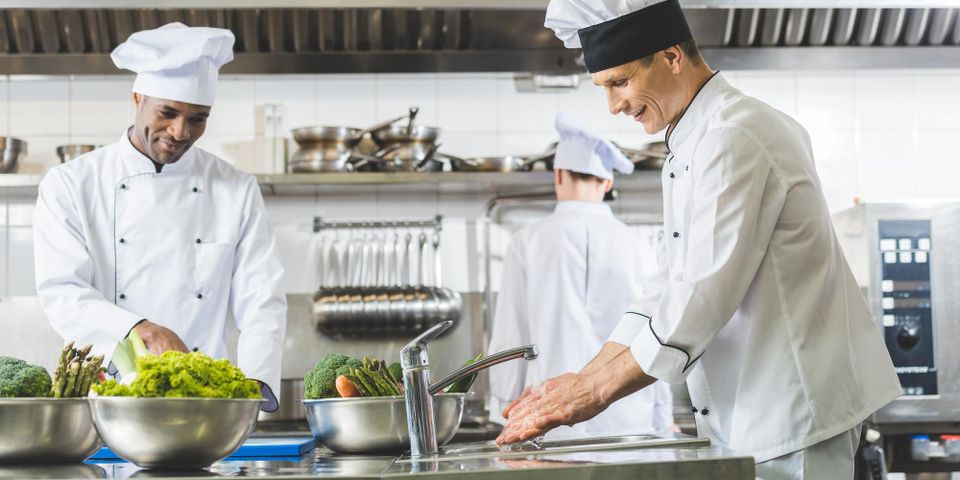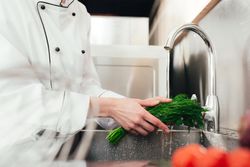4 Restaurant Kitchen Sanitation Best Practices

Keeping a clean kitchen is a must for any restaurant because it ensures your staff and customers’ safety. Maintaining your facilities also reduces the risk of any health code violations. Whether you’re an industry veteran or just starting out, you need a strong understanding of basic commercial cleaning and sanitation procedures.
Essential Cleaning Tasks for Commercial Kitchens
1. Sanitize Surfaces Regularly
All the surfaces in your kitchen can harbor crumbs, grease, and germs. Food left in the open can also attract pests, which often carry their own bacteria. To prevent infestations and cross contamination, wipe down all surfaces every day. Think of everything your staff touches in a day, including the prep tables, storage equipment, appliances, waste receptacles, and cutting boards. Even the floors, sinks, and drains need to be washed and sanitized.
All surfaces need to be scraped to get rid of crumbs and debris, then washed with hot, soapy water each day. Rinse away the soap and wipe the area dry. Once a week, sanitize the kitchen; you can use products containing chlorine or ammonium for effective results. Let the newly sanitized area air dry before using it again.
2. Practice Proper Hand Washing
Everyone in the kitchen needs to wash their hands before and after handling food, even if they wore gloves. Providing clean, convenient sinks around your kitchen and plenty of antibacterial soap will encourage your staff to follow the proper procedures.
3. Store Food Away From Preparation Areas
 Unless you’re working with a food item, it should be stored in a sealed container in a pantry or refrigerator to cut down the risk for cross contamination. Safe storage is especially important when you’re handling common allergens, including dairy, fish, nuts, and wheat, or raw meat or seafood. You should also have separate knives, cutting boards, and storage containers for potential allergens and to keep raw and cooked foods separate.
Unless you’re working with a food item, it should be stored in a sealed container in a pantry or refrigerator to cut down the risk for cross contamination. Safe storage is especially important when you’re handling common allergens, including dairy, fish, nuts, and wheat, or raw meat or seafood. You should also have separate knives, cutting boards, and storage containers for potential allergens and to keep raw and cooked foods separate.
Proper storage also keeps pests away and ensures temperature-sensitive foods, such as meat, dairy, and eggs, stay in the appropriate range so they don’t spoil.
4. Keep Utensils Clean
The utensils in your kitchen need to be as clean as every other surface, whether they’re meant for food preparation or setting the dining tables. Sanitize them between uses by washing them in water that is at least 170 degrees Fahrenheit for at least 30 seconds. Items that are dishwasher-safe can go through your high-temperature machine. If you drop a utensil, sanitize it instead of wiping it off.
A professional commercial cleaning service can also help keep your kitchen free of debris and bacteria. Honolulu’s PWC The People Who Clean has been serving businesses throughout Hawaii since 1973 and offers a wide array of customizable services, from basic janitorial service to pressure washing and metal restoration. They offer flexible scheduling and affordable plans that work for every business. Visit their website to see their commercial cleaning options, and call (808) 521-6307 to request a free estimate.
About the Business
Have a question? Ask the experts!
Send your question

